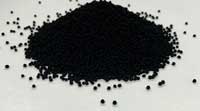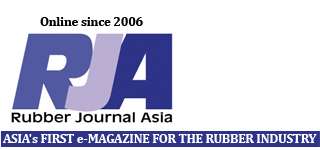 Tyre recycler Pyrum Innovations, together with recycling company Remondis, are planning to construct a Pyrum plant to recycle end-of-life tyres (ELT). For this purpose, a letter of intent was recently signed. The plant is to be located on a Weserport site in Bremen, Germany, at a subsidiary of Remondis’ sister company Rhenus. It will have a recycling capacity of 20,000 tonnes/year of ELT from which the raw material, carbon black, will be recovered.
Tyre recycler Pyrum Innovations, together with recycling company Remondis, are planning to construct a Pyrum plant to recycle end-of-life tyres (ELT). For this purpose, a letter of intent was recently signed. The plant is to be located on a Weserport site in Bremen, Germany, at a subsidiary of Remondis’ sister company Rhenus. It will have a recycling capacity of 20,000 tonnes/year of ELT from which the raw material, carbon black, will be recovered.
It is planned that Pyrum will start preparing the approval documents required for construction in the next few weeks, which should be submitted in the first half of 2024.
The investment volume for the new plant amounts to approximately EUR40 million. Pyrum adds that it can thus further expand the pipeline for the construction of pyrolysis plants. In addition to its projected own plant in Saarland, there are currently five plants in the concrete planning and approval phase in cooperation with various partners.
Pascal Klein, CEO of Pyrum: “We are incredibly proud that Remondis has chosen our technology and is now taking the step together with us to build a plant based on Pyrum technology. This is another important milestone to increase our recycling capacities in order to be able to meet the high demand for our end products.”
He added that the new plant will help to sustainably transform the ELT market and take a further step towards the circular economy and also highlighted that the customer for the pyrolysis oil produced at the new plant in Bremen will be German chemical group BASF SE, which will use the oil in its production network to manufacture mass-balanced products.
Jürgen F. Ephan, managing director of Remondis Recycling said: “It is in our company’s DNA to want to create and develop material cycles. For this reason, we are very pleased to have entered into a partnership with Pyrum in which we are taking on a very challenging material flow which, until now, could only be recycled thermally.”
Ephan concluded, “Together, we are actively contributing to making our society and economy a little more circular instead of linear. The recovered raw material carbon black can be completely reused in the production of new tyres. This is the ideal case of the circular economy.”
Meanwhile, BASF has signed a new cooperation agreement with Pyrum whereby it will provide for a conditional loan of initially EUR25 million, to be drawn in tranches, which will serve as start-up financing for the realisation of Pyrum’s concrete project pipeline until 2026.
In addition, provided that Pyrum will have secured additional financing of EUR50 million, for example in the form of corporate bonds via the capital market, loans or investments from partners of jointly planned plants, BASF will provide a further EUR25 million as a loan to Pyrum under corresponding conditions.
The object of the agreement is the planning, project development and construction of at least three new plants, each with an annual capacity of 20,000 tonnes of end-of-life tyres, using the funds provided.
Pyrum plans to use the funds in particular for the construction of the announced plant in Saarland as well as for the equity contribution and co-financing of up to five of the projects announced in recent months with financially strong partners. The aim of Pyrum and BASF is to significantly expand the company’s production capacities.
